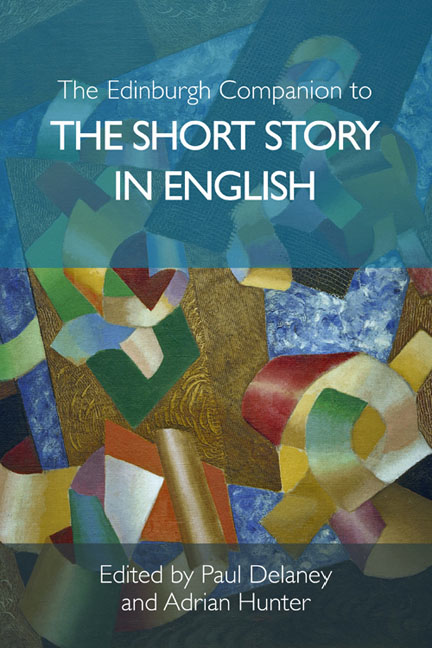Book contents
- Frontmatter
- Contents
- Acknowledgements
- Notes on Contributors
- Introduction
- Part I Historicising the Short Story
- Part II Publishing the Short Story
- 5 The Short Story and the ‘Little Magazine’
- 6 Collections, Cycles and Sequences
- 7 The Short Story Anthology
- 8 The Short Story and Digital Media
- Part III Forms of the Short Story
- Part IV Placing the Short Story
- Part V Identity and the Short Story
- Index of Short Story Titles
- General Index
7 - The Short Story Anthology
from Part II - Publishing the Short Story
Published online by Cambridge University Press: 18 December 2019
- Frontmatter
- Contents
- Acknowledgements
- Notes on Contributors
- Introduction
- Part I Historicising the Short Story
- Part II Publishing the Short Story
- 5 The Short Story and the ‘Little Magazine’
- 6 Collections, Cycles and Sequences
- 7 The Short Story Anthology
- 8 The Short Story and Digital Media
- Part III Forms of the Short Story
- Part IV Placing the Short Story
- Part V Identity and the Short Story
- Index of Short Story Titles
- General Index
Summary
IN HIS 1901 ESSAY ‘Some Anomalies of the Short Story’, W. D. Howells tackled the vexing question why short story collections don't sell:
What is the solution as to the form of publication for short stories, since people do not object to them singly but collectively, and not in variety, but in identity of authorship? Are they to be printed only in the magazines, or are they to be collected in volumes combining a variety of authorship?
Finding both solutions inadequate, magazines being too ephemeral and anthologies too uneven and distracting, he ‘wish[ed]’ instead that ‘it might be found feasible to purvey them in some pretty shape where each would appeal singly to the reader’. If publishers have often repeated the mantra that story collections don't sell, critics have often echoed Howells's frustration with the anthology as an all too fragmented and disparate format for publishing short fiction. ‘The role of the anthology is fraught with problems’, Paul March-Russell writes: apart from the problem of selection, ‘there is also an aesthetic concern … reading several short stories together violates Poe's contention that a short story is to be read as a single and self-sufficient unit’. Leah Price concurs, commenting that ‘the anthology violates modern readers’ sense that the material unit (the book) should coincide with the verbal unit (the text)’.
Yet, it is precisely this non-coincidence of the material unit of publication and the verbal unit of the story that characterises the short story as a genre. A short story is by necessity published together with other texts: in a magazine, a newspaper, a collection, online or, indeed, in an anthology. If this context proves distracting or problematic to some critics, it can also be viewed in a more positive light: as a polyphonic echo chamber that creates meanings and resonances beyond those of the single text. Especially in the miscellaneous context of an anthology, a story's ‘juxtaposition with other stories, either through the reader's choice or because of the editor's ordering of the selection, can have unexpected (and possibly creative) outcomes’. Taken out of their original publication context, stories in an anthology can forge new and unexpected connections with other texts. Far more than in the case of the novel, where material and verbal units coincide, the publication context of a short story has an influence on the reader's understanding of that story.
- Type
- Chapter
- Information
- The Edinburgh Companion to the Short Story in English , pp. 108 - 124Publisher: Edinburgh University PressPrint publication year: 2018



